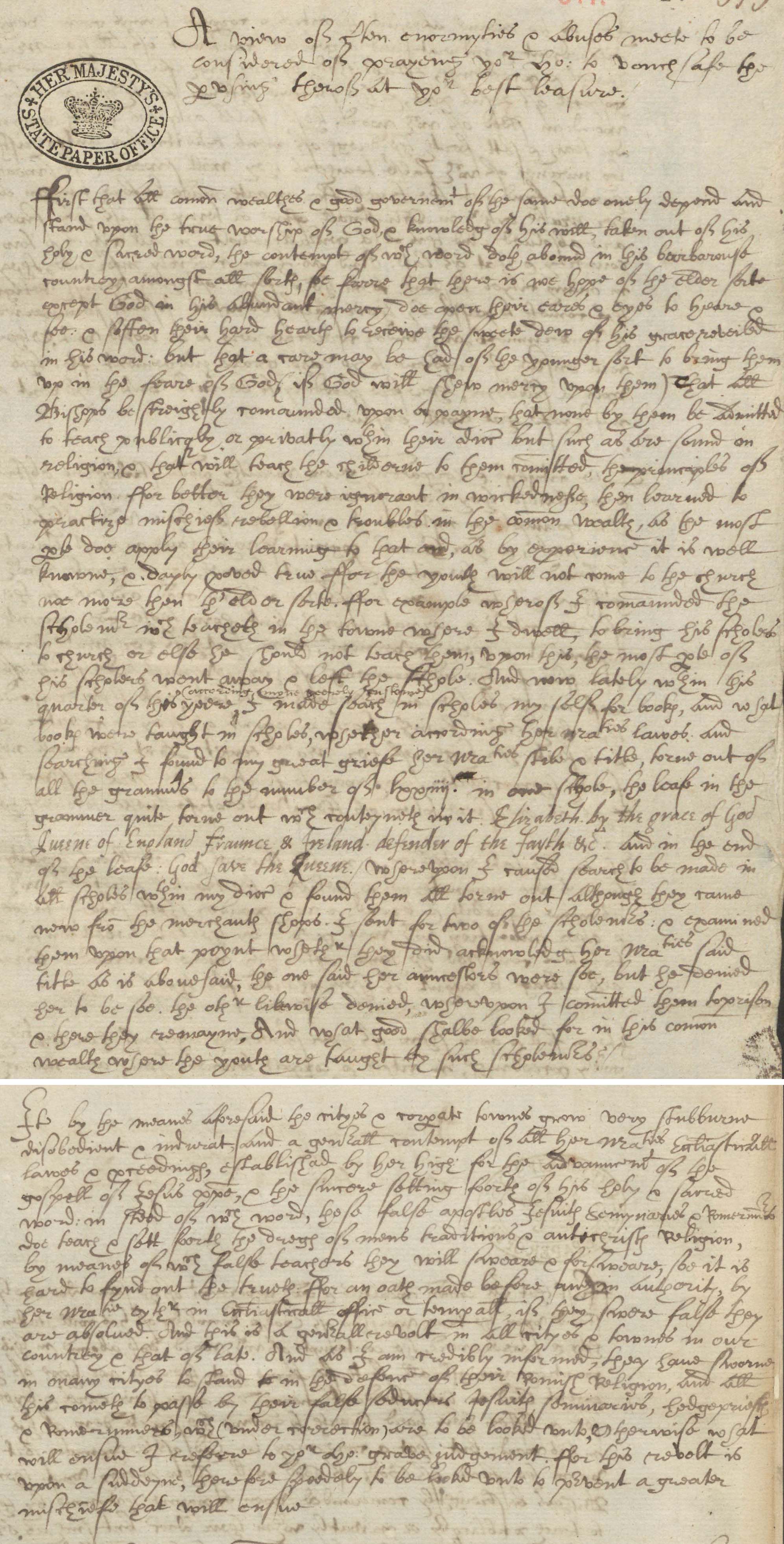
Adam Loftus, Archbishop of Dublin to Lord Burghley, 22 September 1590 (SP63/154/37, fos. 129r-130v)
The failure of Protestantism to gain any significant hold was a major source of anxiety to the Elizabethan regime and schemes were regularly proposed to remedy the situation. Here, as he outlines the problems, Loftus blames previous Lord Deputies (specifically Sir John Perrott) for the poor state of the realm. This was typical of Irish politics in Elizabeth’s reign. Loftus proposes heavy fines to force people to reform. Note also the failure of the thanksgiving services for the defeat of the Armada to gain any real support in Ireland.
Transcript
It may please your good Lord: I have been lately made partaker of your Lord’s letter to my special good Lord the Lord Deputie [Sir William Fitzwilliam] wherin you lament the general corruption of this realm in the cause of religion, and do wish his Lord and myself to enter into some speedy consideration how the same may be remedied. I am there by emboldened humbly craving your Lord’s good acceptance, both at large to discover unto you, the means and degrees, by which this people are fallen into this general revolt, and to signify mine opinion how they may be reduced to better conformity. And looking back unto the times past, I can not forbear to inform your Lord of that, which in mine experience I know to be true: that albeit there hath been in this people a general disposition to popery, as to a thing where in they are nusled [nursed] even from their cradles: yet this general recusany is but of six years continuance at the most, and began in the second year of Sir John Perrott’s government,[1] in the beginning of the parliament holden by him. Before which time I well remember and do assure your Lord there were not in the pale [the Irish Pale, area around Dublin] the number of xii recusants gentlemen of account. But since they have grown in such obstinacy, and boldness, that it is to be feared (if some speedy remedy be not provided) upon pretence of religion they will shake off all duty and obedience. Before that time they were restrained by the ecclesiatical commission, and how so ever they were affected inwardly in their consciences, yet outwardly they showed great duty, and obedience, in resorting to service, sermons and in receiving of the communion. In the beginning of the parliament, Sir Nicholas White in the name of his countrymen moved Sir John Perrott with sundry reasons, before the most of this council, to permit this people to have the liberty of their consciences, and the free use of ther religion, wherein they had been bred, and brought up, assuring Sir John, that granting that unto them, they would not only condiscend [agree] to the repeal of Poyning’s Act,[2] but to any other reasonable motion, which should be propounded in the parliament his good success with the Lord Deputy at that time moved an other of this country one
[1] Sir John Perrott was Lord Deputy twice: 1571-3 and 1584-8. Loftus is probably referring to his second term and, hence to 1584-5
[2] An act of 1494, named after the Lord Deputy at the time, which established that the Irish parliament could not meet without its agenda being approved not only by the Lord Deputy and the Privy Council of Ireland, but also the monarch and the Privy Council of England.
